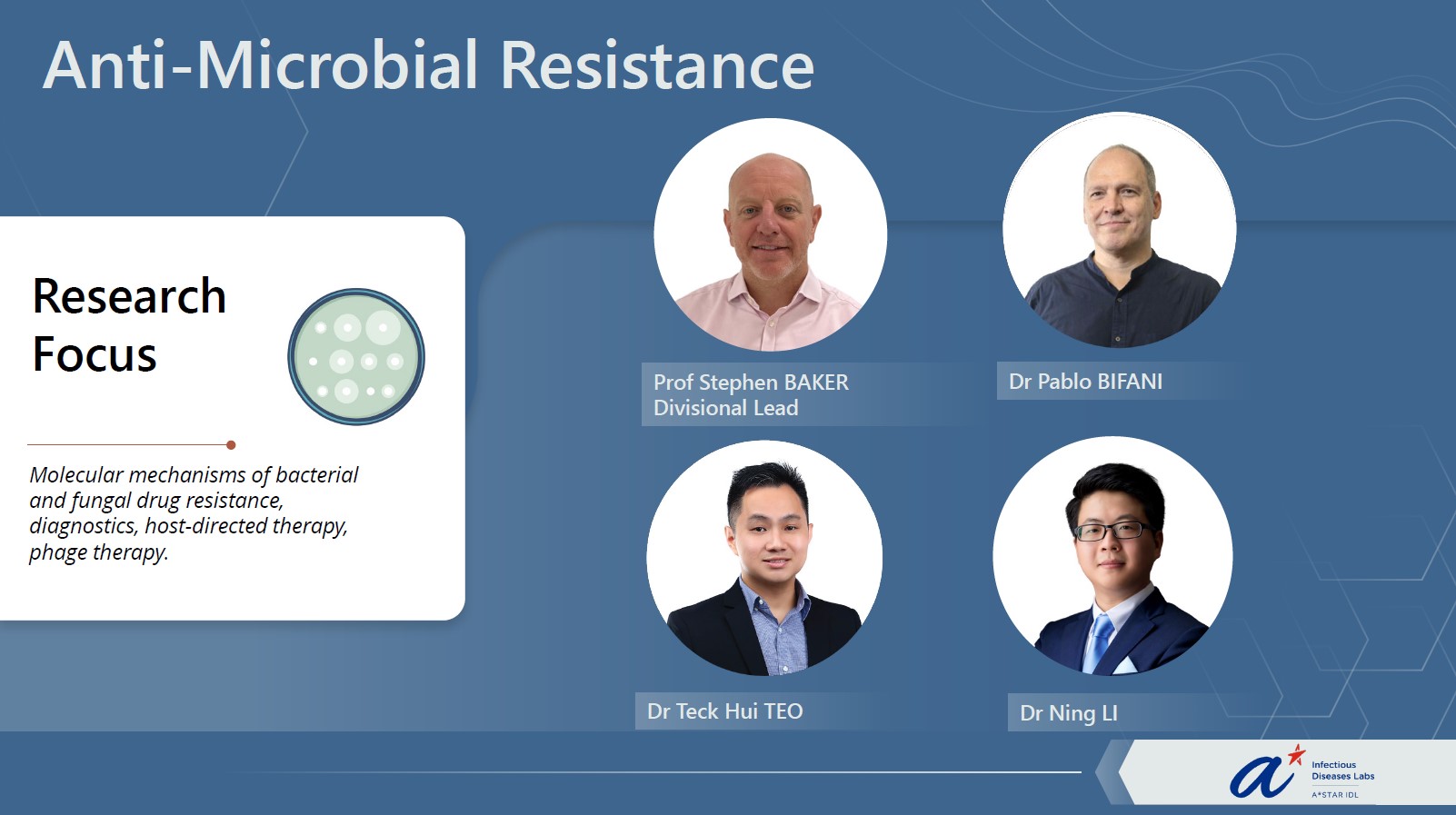Anti-Microbial Resistance

Antimicrobial resistance (AMR) is a serious global health threat where pathogens evolve to resist treatment by antibiotics, making infections harder or impossible to cure. It is driven by the misuse and overuse of antimicrobials in humans, animals, and agriculture, and leads to reduced treatment options, increased healthcare costs, and higher mortality1. AMR also jeopardises medical procedures that rely on effective antimicrobials and is worsened by the rapid global spread of resistant organisms and gaps in surveillance.
A*STAR IDL’s AMR domain addresses this urgent clinical need and public health challenge by developing therapeutic and vaccine solutions with direct translational value. Led by Professor Stephen Baker, the domain is supported by Professors Pablo Bifani and Yue Wang, and Drs Teck-Hui Teo and Ning Li. The team focuses on developing next-generation therapeutics targeting high-priority bacterial and fungal pathogens. Efforts include exploring broad-spectrum phage therapies, investigating resistance in Candida to identify new drug targets, and designing synthetic antimicrobials that selectively disrupt microbial membranes. Additional work explores host-targeted therapies by studying immune-metabolic pathways in resistant infections to uncover novel intervention points. The team is also advancing monoclonal antibodies and RNA-based delivery systems for Gram-negative infections, supported by machine learning–guided phenotypic drug screening. In alignment with A*STAR’s mission, the domain seeks to position Singapore as a global leader in AMR innovation by advancing research from early discovery to clinical application.
A*STAR celebrates International Women's Day

From groundbreaking discoveries to cutting-edge research, our researchers are empowering the next generation of female science, technology, engineering and mathematics (STEM) leaders.
Get inspired by our #WomeninSTEM
.png?sfvrsn=b11c2136_5)